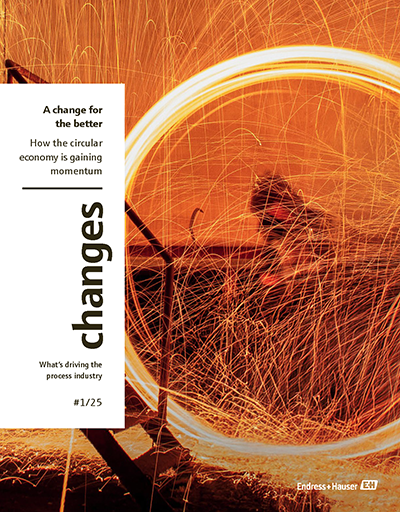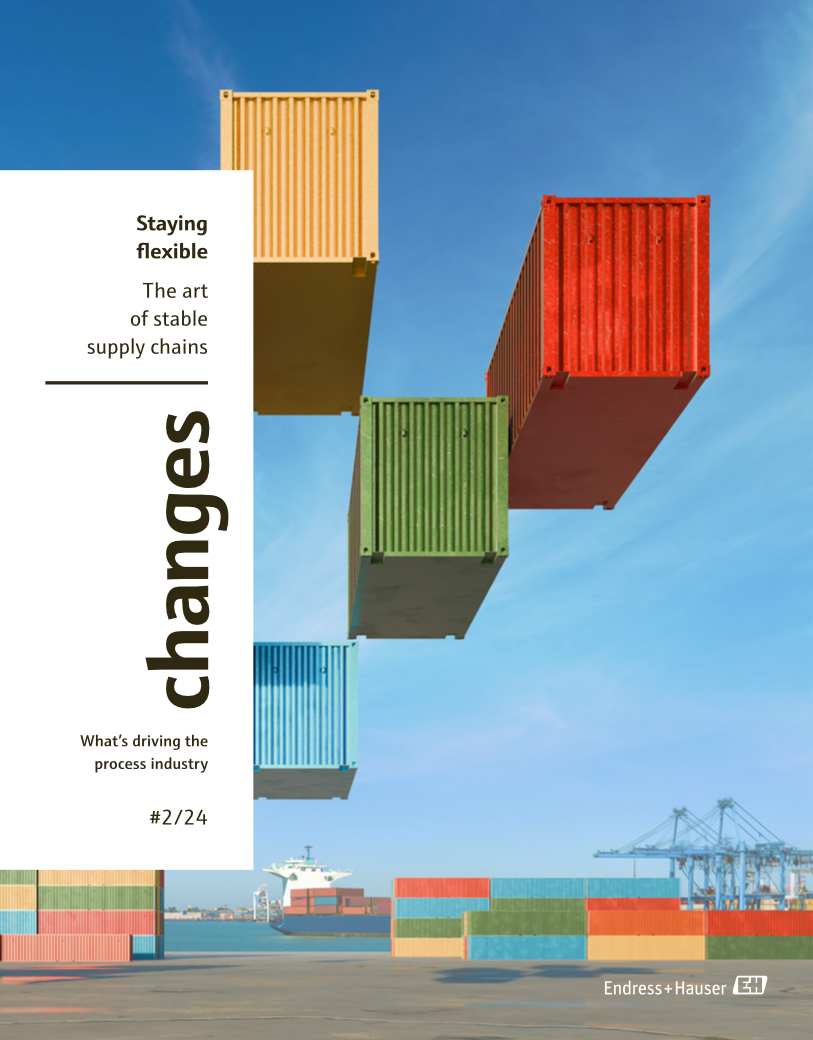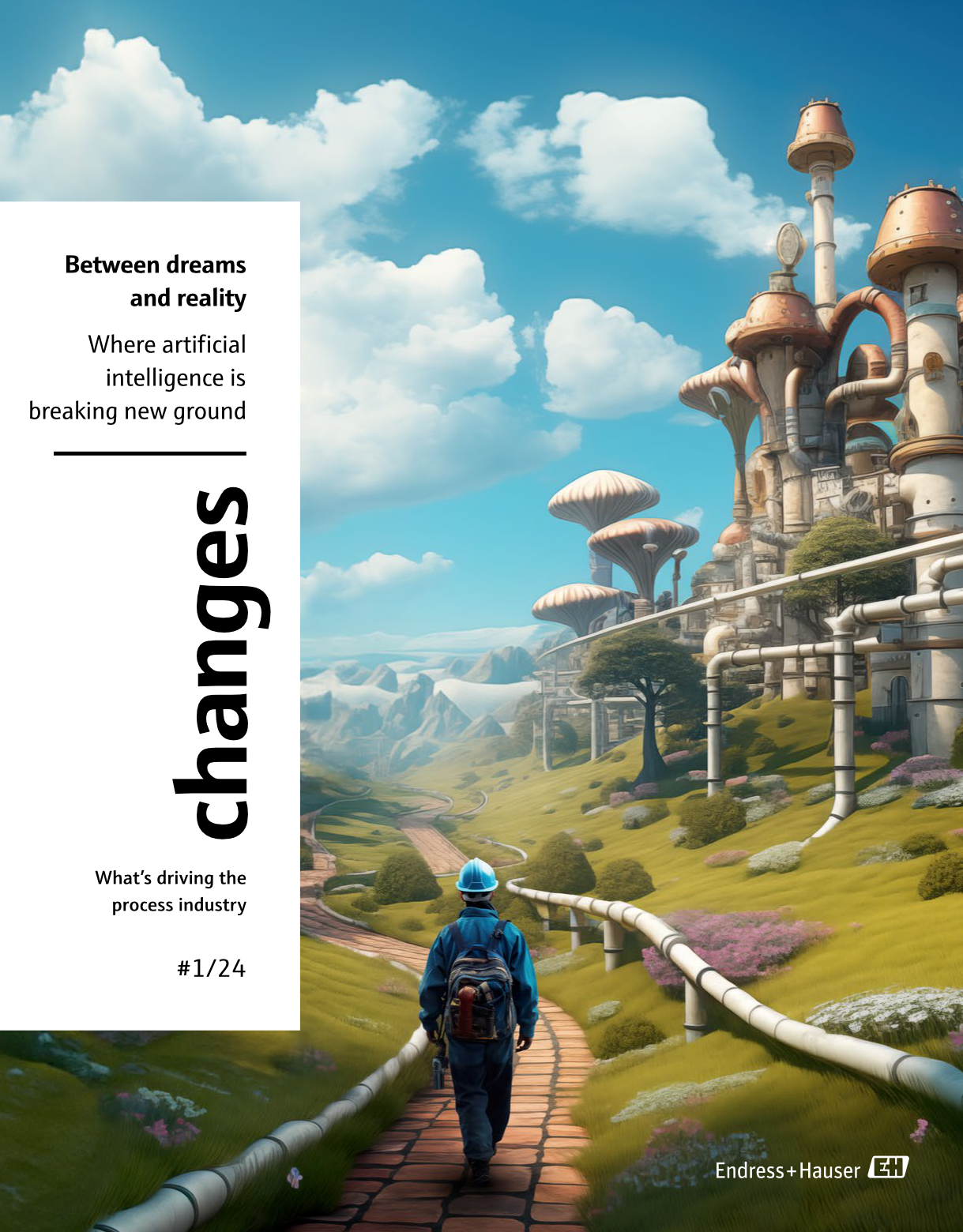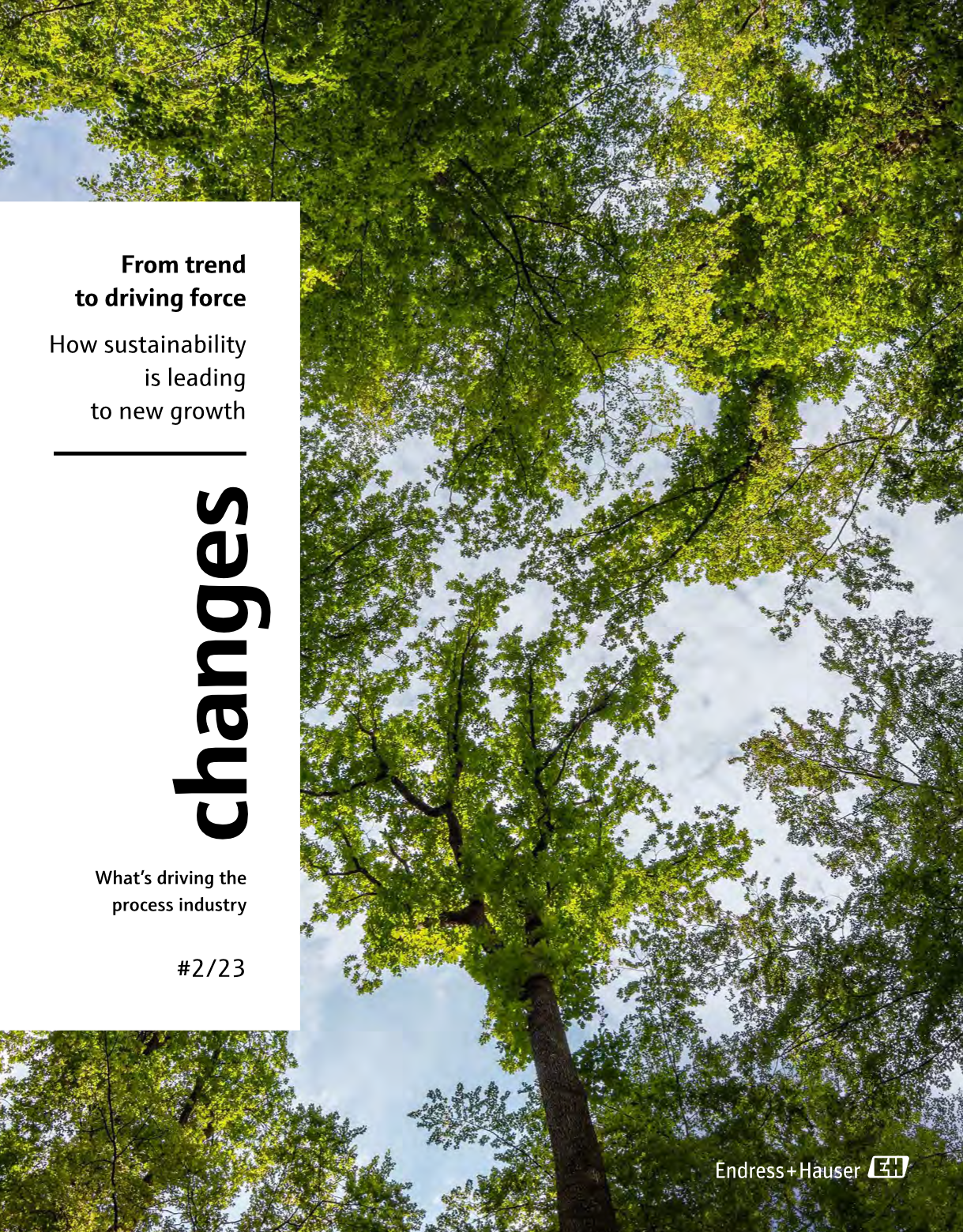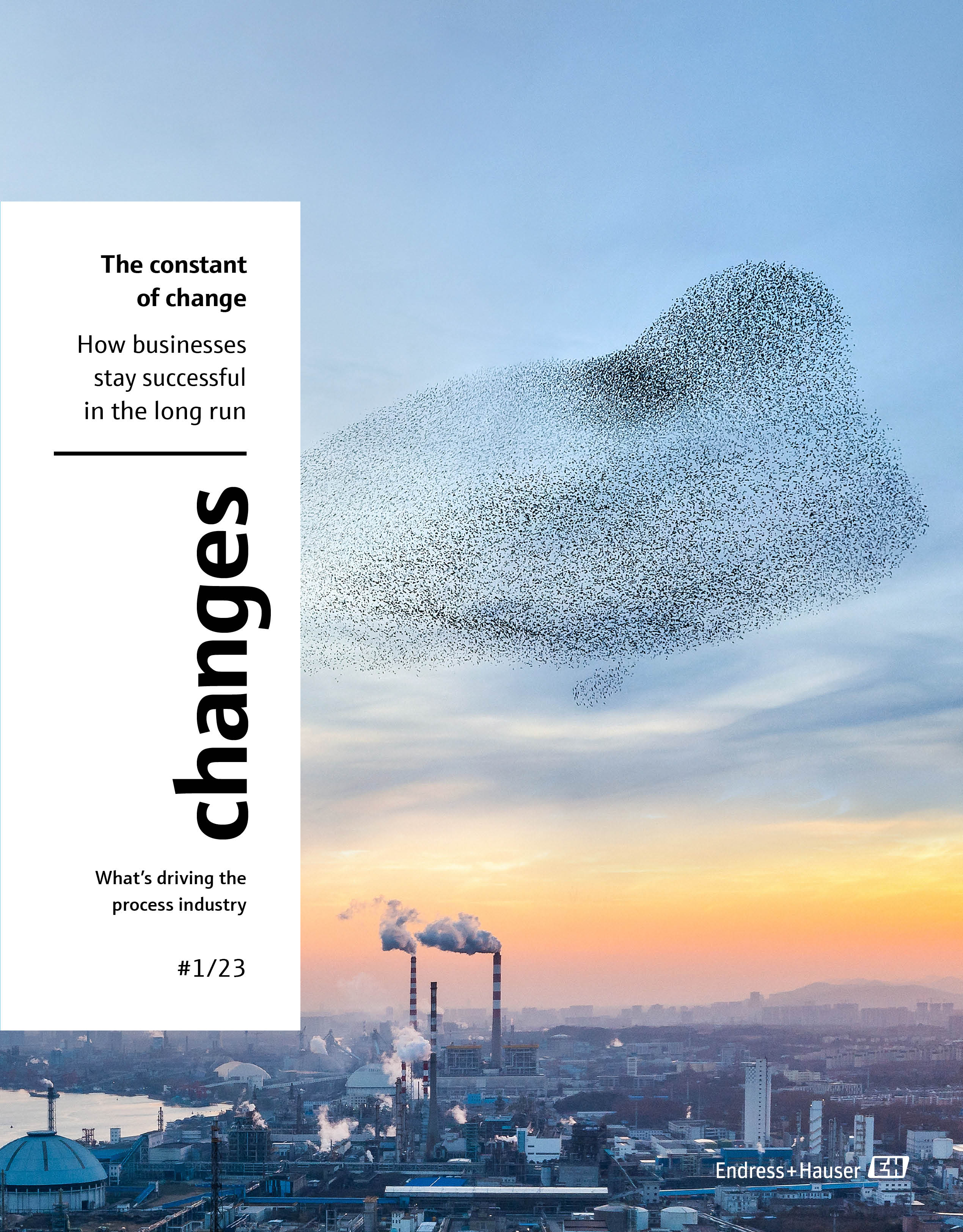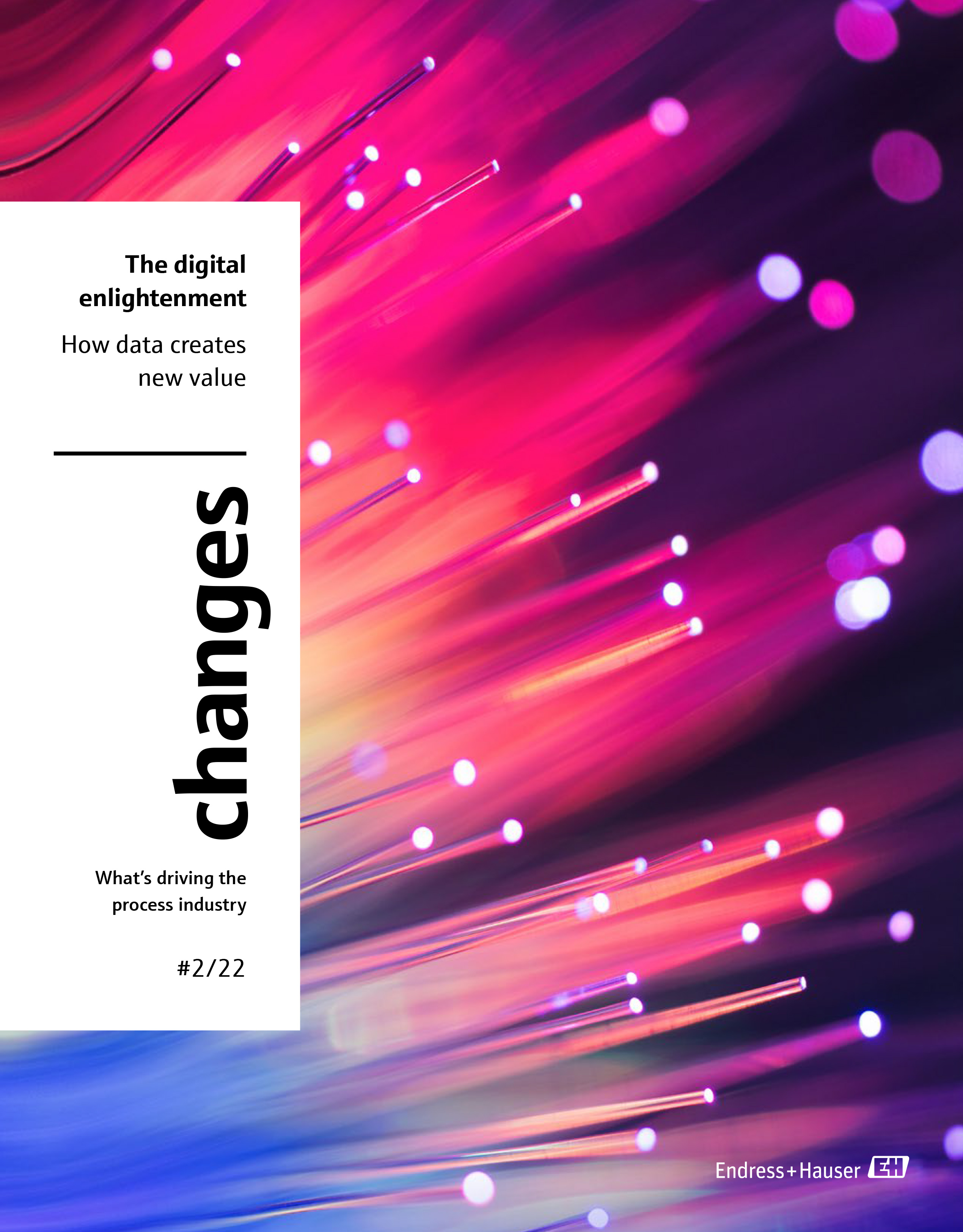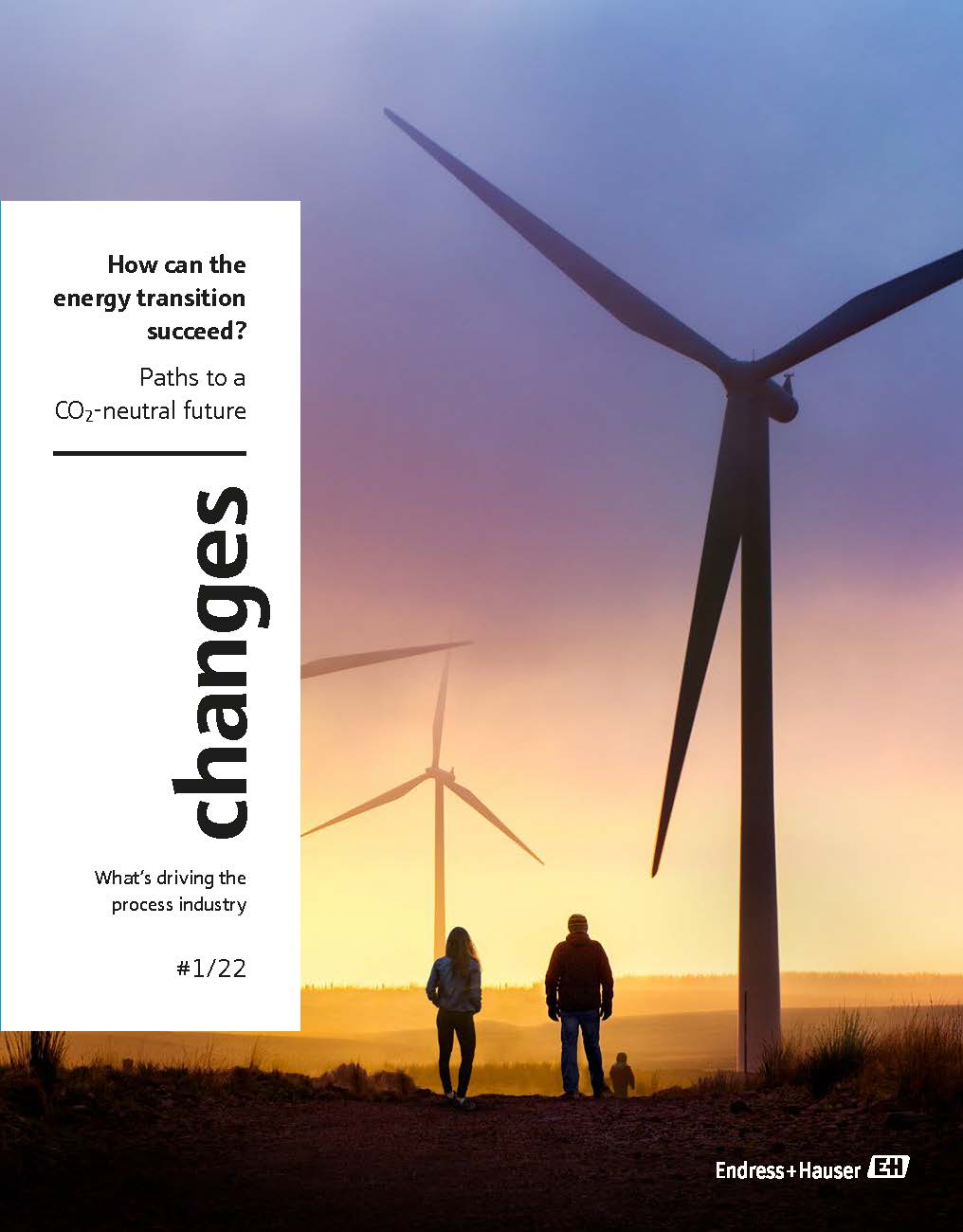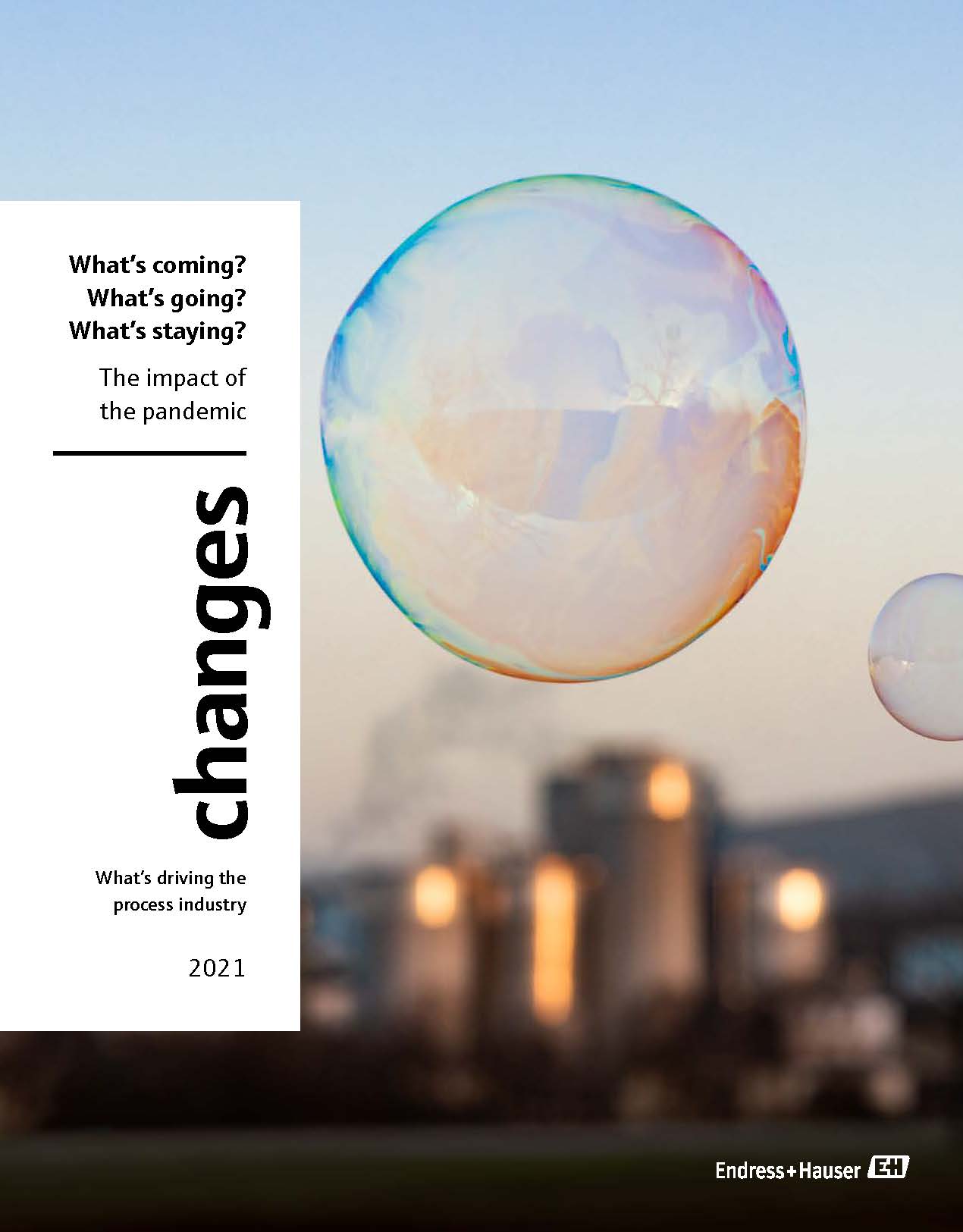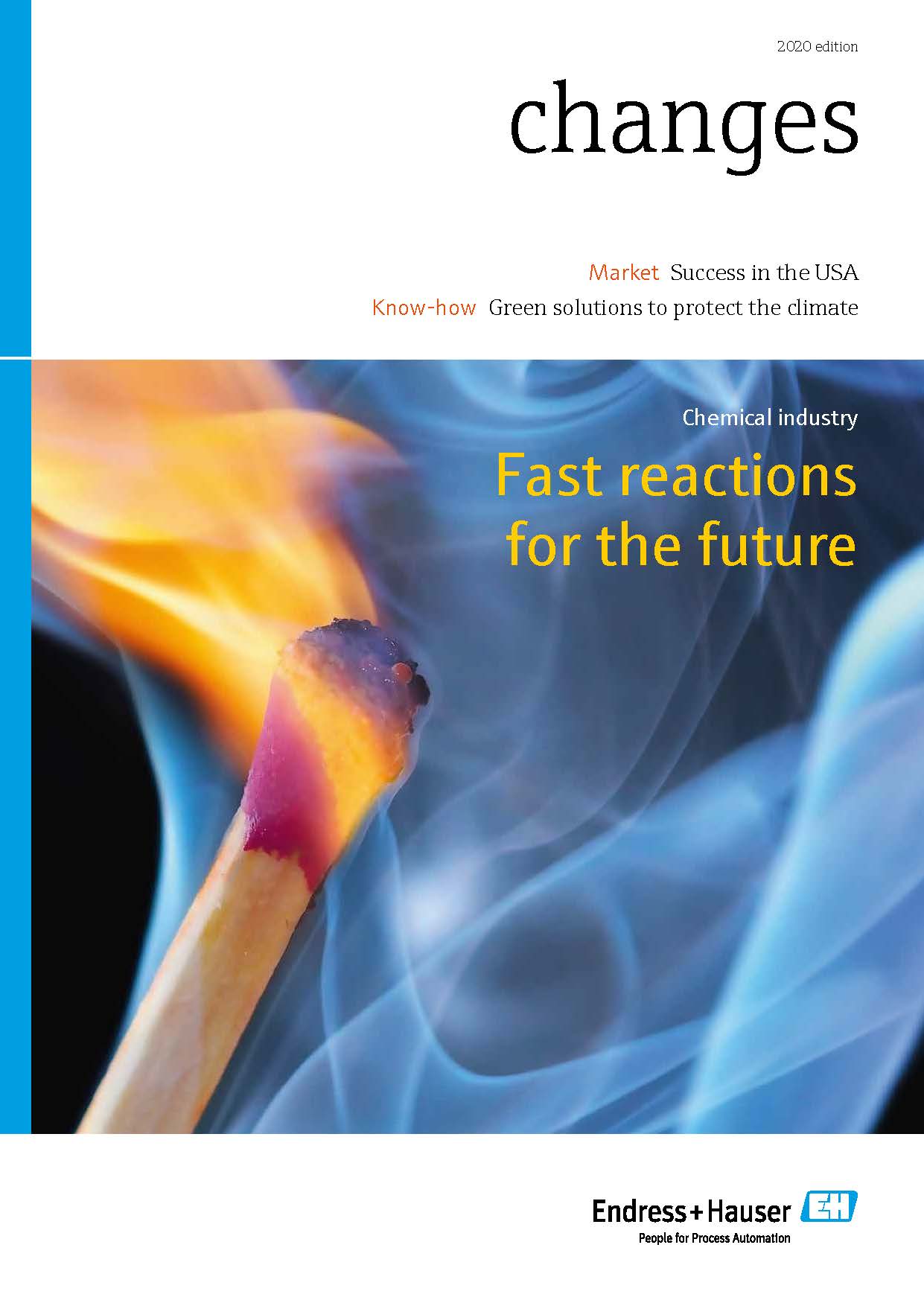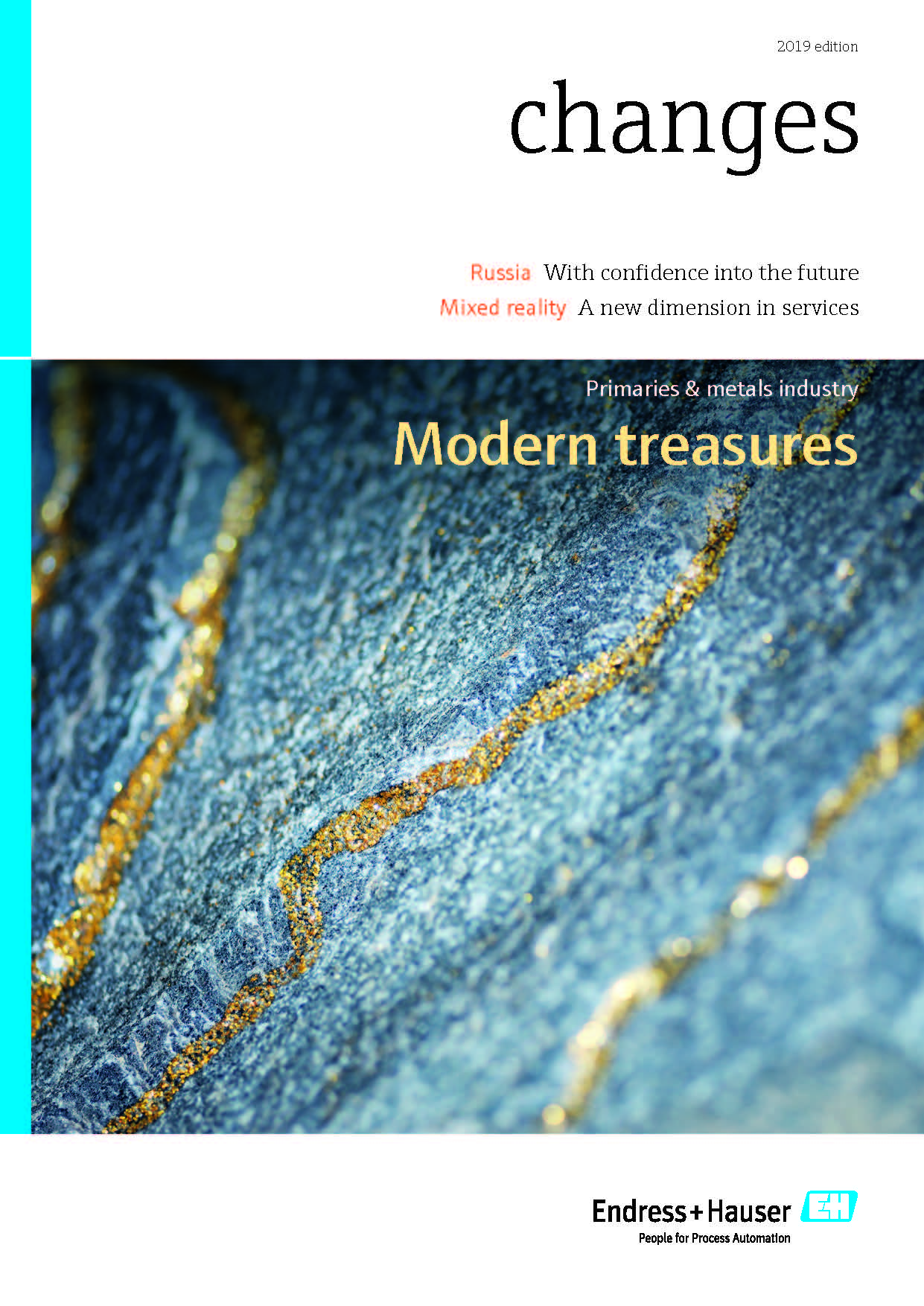“Great brands carry change”
How does changing consumer behavior impact the world’s largest food company? Magdi Batato, Nestlé’s Head of Operations, explains in discussion with Matthias Altendorf why the whole value chain has to be looked at.
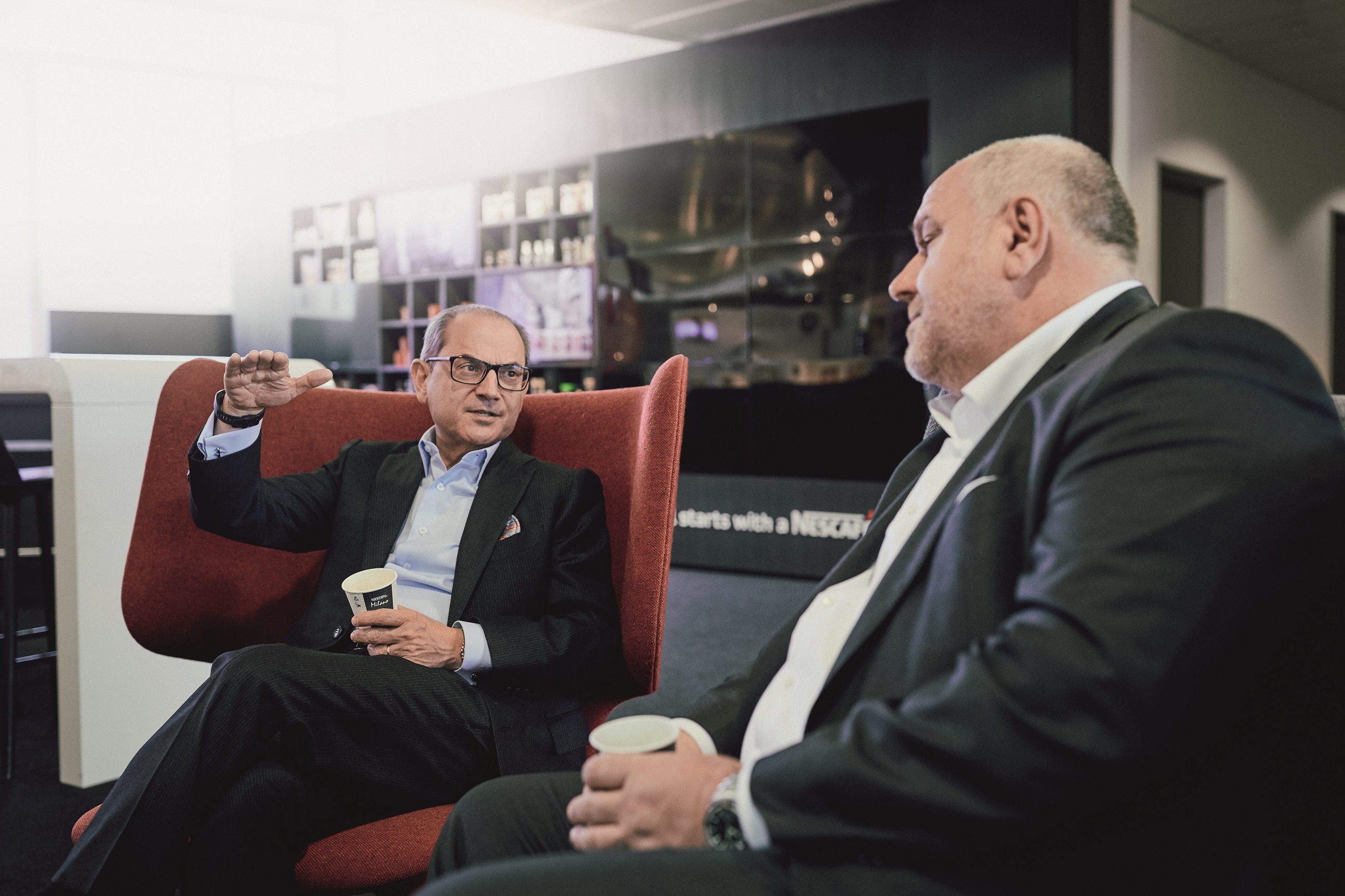
Mr Batato, you have spent most of your career with Nestlé. What makes the company unique to you?
Batato: In my eyes, the most amazing thing about Nestlé is our capability to embrace change. We have been around for 150 years, and of course we have the ambition to stay another 150 years at least. But that’s easier said than done; it requires a lot of adaptability. And I think that’s the strong point of Nestlé: we have been able over many, many years to adapt to changes in the outside world.
This must be an ability much in demand, as Nestlé is challenged in various fields…
Batato: We are seeing changes in consumer behavior in particular. Millennials are looking for more variety and innovation, for healthy and natural products that are tasty and made with fresh ingredients. This younger generation of consumers is also very digital savvy. That means ecommerce is gaining importance for us, and we will have to make good use of the fourth industrial revolution in manufacturing to be able to provide the right products in the right quality at the right time on the right channels. It’s an exciting journey we have started, but I’m very confident that the way we have adapted over the last 150 years will stand us in good stead in an evolving business environment. We are a company of great brands. And great brands carry change, because you can let them evolve!
“You cannot achieve results alone. You have to work together. We succeed on the marketplace with our suppliers!”
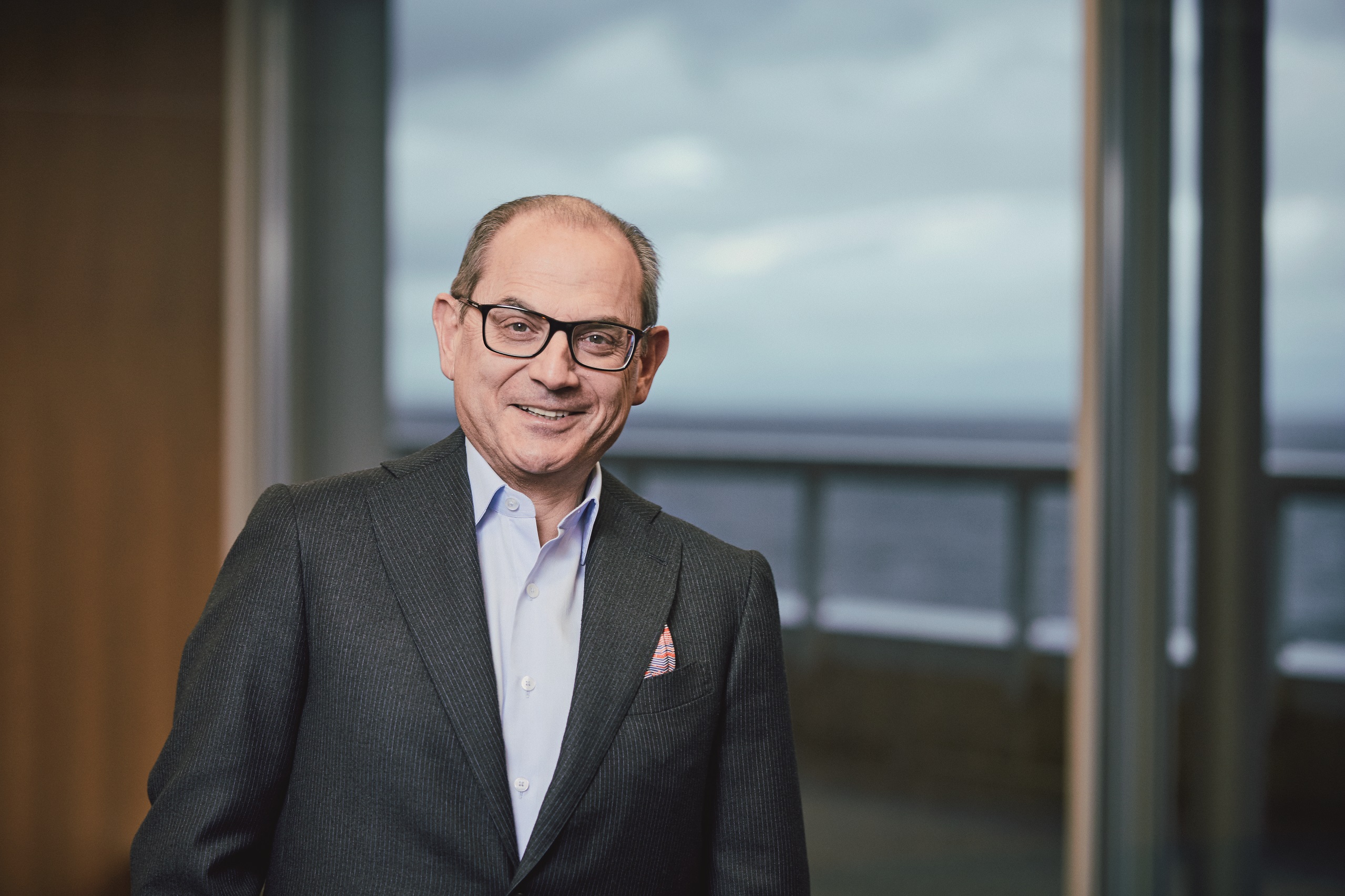
Magdi Batato
Executive Vice President and Head of Operations of Nestlé
What significance do suppliers like Endress+Hauser have to you?
Batato: Our customers want our deliveries to be on time, complete, cost-effective and to meet the specifications. And that means that all our suppliers need to meet these requirements too! For us, the collaboration with Endress+Hauser is like a partnership. You cannot achieve results alone. You have to work together, understand what is needed and find solutions. We succeed on the marketplace with our suppliers!
What benefits can Endress+Hauser offer through close cooperation?
Altendorf: It’s quite important to go beyond a simple buyer–supplier relationship, because it’s partnership that creates innovation and thus generates value for our customers. When we collaborate closely we observe our customers’ needs and recognize possible improvements. In this regard, our relationship with Nestlé is very strong, marked by reliability and stability. We share common objectives and have created mutual understanding over time. Time and again we work together on specific issues and developments. As our company founder said, we serve our customers and learn from them – and by serving and learning from them, we become better in what we do. We wouldn’t have this position in the food & beverage industry without this approach!
How important is innovation in Nestlé’s operations?
Batato: Although we are a company of great brands, we are also a manufacturing company with a lot of science and many core competencies. We innovate in some product categories by developing our own technology because we believe it gives us a competitive advantage. We also innovate in our processes to improve our adaptability and thus our flexibility – for smaller batches or faster change-overs, for example. Efficiency is another consideration. We want to benefit as much as possible from the fourth industrial revolution, for example through predictive maintenance.
Nestlé was founded here in Vevey. How important is this heritage to your company?
Batato: Everything started here. The company is very much linked to this place, but that doesn’t mean it’s a Swiss company. Nestlé is a multinational company. If you walk through the head office, you will hear a lot of languages. We have dozens of nationalities working here. Diversity is one of our strengths that make us successful, as well as openness of culture.
Altendorf: Diversity is a strong protector, because it makes a company less prone to external effects. It creates more complexity, but leads to better productivity, more innovation, higher employee satisfaction and even stronger customer retention.
What could Endress+Hauser learn from a company like Nestlé?
Altendorf: First of all, it’s our goal to one day celebrate Endress+Hauser’s 150th birthday as Nestlé did last year, even if I will unfortunately be unable to attend… (Laughs) But this anniversary shows that the company culture is based on strong values that allow survival even in highly dynamic environments. I think in this respect we can learn a lot from Nestlé how to develop a company continuously over time but preserve the core of it. Nestlé always adapted in a very sustainable way to customer needs. This is a great achievement and something we aim for, too!
What significance do suppliers like Endress+Hauser have to you?
Batato: Our customers want our deliveries to be on time, complete, cost-effective and to meet the specifications. And that means that all our suppliers need to meet these requirements too! For us, the collaboration with Endress+Hauser is like a partnership. You cannot achieve results alone. You have to work together, understand what is needed and find solutions. We succeed on the marketplace with our suppliers!
What benefits can Endress+Hauser offer through close cooperation?
Altendorf: It’s quite important to go beyond a simple buyer–supplier relationship, because it’s partnership that creates innovation and thus generates value for our customers. When we collaborate closely we observe our customers’ needs and recognize possible improvements. In this regard, our relationship with Nestlé is very strong, marked by reliability and stability. We share common objectives and have created mutual understanding over time. Time and again we work together on specific issues and developments. As our company founder said, we serve our customers and learn from them – and by serving and learning from them, we become better in what we do. We wouldn’t have this position in the food & beverage industry without this approach!
How important is innovation in Nestlé’s operations?
Batato: Although we are a company of great brands, we are also a manufacturing company with a lot of science and many core competencies. We innovate in some product categories by developing our own technology because we believe it gives us a competitive advantage. We also innovate in our processes to improve our adaptability and thus our flexibility – for smaller batches or faster change-overs, for example. Efficiency is another consideration. We want to benefit as much as possible from the fourth industrial revolution, for example through predictive maintenance.
Nestlé was founded here in Vevey. How important is this heritage to your company?
Batato: Everything started here. The company is very much linked to this place, but that doesn’t mean it’s a Swiss company. Nestlé is a multinational company. If you walk through the head office, you will hear a lot of languages. We have dozens of nationalities working here. Diversity is one of our strengths that make us successful, as well as openness of culture.
Altendorf: Diversity is a strong protector, because it makes a company less prone to external effects. It creates more complexity, but leads to better productivity, more innovation, higher employee satisfaction and even stronger customer retention.
What could Endress+Hauser learn from a company like Nestlé?
Altendorf: First of all, it’s our goal to one day celebrate Endress+Hauser’s 150th birthday as Nestlé did last year, even if I will unfortunately be unable to attend… (Laughs) But this anniversary shows that the company culture is based on strong values that allow survival even in highly dynamic environments. I think in this respect we can learn a lot from Nestlé how to develop a company continuously over time but preserve the core of it. Nestlé always adapted in a very sustainable way to customer needs. This is a great achievement and something we aim for, too!
Published 01.01.2018, last updated 11.10.2022.
Dive into the world of the process industry through new exciting stories every month with our «changes» newsletter!
